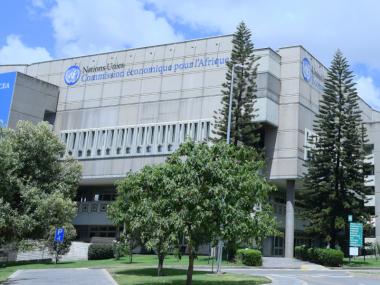Introduction
Following conclusion of the Paris Agreement 1st Global Stocktake (GST-1) at COP28 in Dubai, ECA in collaboration with the African Group of Climate Change Negotiators (AGN) commissioned an analysis of the GST-1 and its implications for Africa’s NDCs and development aspirations. The partners have completed drafting the analysis and it is available here. Regional stakeholders are invited to peruse the document and to participate in a series of events, where the analysis will be validated.
Background
The mandate of the GST and its outcome per Article 14.3 of the Paris Agreement is to inform Parties in updating and enhancing, in a nationally determined manner, their actions and support in accordance with the relevant provisions of the Agreement, as well as in enhancing international cooperation for climate action.
The fifth meeting of the Conference of Parties serving as the meetings of the Parties to the Paris Agreement (CMA 5), held in Dubai, UAE in December 2023, ended with the adoption of what is considered a historic and consequential outcome on the GST-1. The decision (Decision 1/CMA.5) included for the first time a global agreement on transitioning the energy and transport sectors away from the use of fossil fuels to net zero emission systems in a just, orderly and equitable manner (§28(d)) while accelerating the widespread diffusion of zero- and low-emission technologies. The decision also calls on Parties to contribute to these global efforts, in a nationally-determined manner, taking into account the Paris Agreement and their different national circumstances, pathways and approaches. The GST-1 outcome and other CMA.5 decisions also adopted dimension and thematic targets towards achieving the Global Goal on Adaptation (GGA), in addition to agreements on accelerating efforts to address loss and damage, response measures and support to developing countries including finance, technology, among other outcomes.
The African Group participated constructively in the negotiations with a clear position founded on the continent’s unique circumstances and based on the relevant provisions and principles of the Convention and Paris Agreement. The Group asserted that Africa undertakes climate actions in the context of sustainable development and eradication of poverty; therefore, African countries will follow a sustainable development pathway that prioritizes the achievement of the SDGs, and climate obligations that are aligned with those goals, as is consistent with the purpose of the PA as written in Article 2. This narrative guided the African position across the different thematic areas and sectors that were negotiated in the GST, including energy, forestry and land-use sectors in mitigation, agriculture, water, livelihoods, and others in adaptation, loss and damage and response measures.
In accordance with the legally binding commitment in Article 14.3 of the PA, Parties will now have to respond to the outcome of GST-1 by taking them into consideration for a preparation of an enhanced third nationally-determined contributions (NDC.3) and an enhanced international cooperation and support. NDC 3.0 preparations are expected to be concluded and submitted no later than 9 months before cop30/CMA.7 in Belem, Brazil (November 2025).
Context and overall objectives:
African countries are at the stage of initiating national processes to consider and implement the outcomes from GST-1. There is therefore a pressing need for an African-focused analysis of the GST outcome and related decisions of CMA.5, in order to understand the policy, economic and developmental implications for the African continent and to inform African countries efforts to consider and implement the outcome of GST-1. The analysis should also inform the efforts by African regional organizations to enhance international cooperation in climate action, support (finance and technology) and investment in the continent. In addition, the output from the GST-1 outcome analysis should also inform the African Group’s negotiating positions in the follow-up phase of GST-1 where a number dialogues and processes are being conducted to ensure successful implementation of the outcome of GST-1.
Presentations
- Enhancing Ambition of Climate Action in the African Context: Africa-Focused Analysis of the First Global Stocktake (GST-1) Outcomes
- Methodological Framework and Role of Regional Organisation
- Transition to Climate Resilient Economies: Adaptation
- Global Stocktake(GST) and Its Implications for African Economies
- Energy Transition
- Economy-Wide Targets
- Article 6 of the Paris Agreement
- Forest and Land Use
- Climate Finance
- Technology Development, Transfer and Diffusion
- Reporting Cycle and Transparency
- Just Transition, Response Measures and International Cooperation
